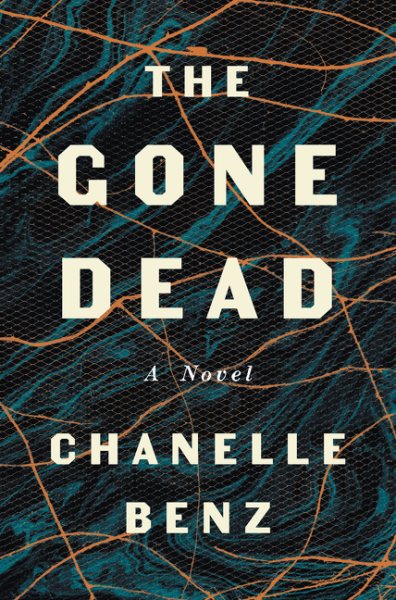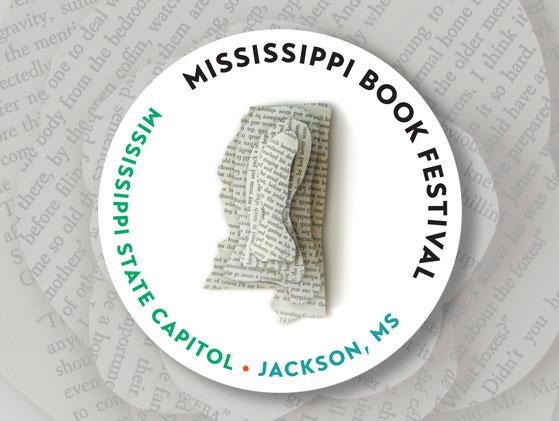Interview by Jana Hoops. Special to the Clarion-Ledger Sunday print edition (June 23)
 Born in London and growing up in points around the U.S., Chanelle Benz wound up discovering the Mississippi Delta–which would become the setting for her new novel The Gone Dead–when her husband’s educational path brought them to the University of Southern Mississippi for his studies.
Born in London and growing up in points around the U.S., Chanelle Benz wound up discovering the Mississippi Delta–which would become the setting for her new novel The Gone Dead–when her husband’s educational path brought them to the University of Southern Mississippi for his studies.
In this evocative story of a young woman who returns to the Delta to answer questions about her past, Benz takes readers inside the unexpected darkness that drew main character Billie James back to her hometown, even as she finds her life in danger.
Benz’s short stories in have appeared in Guernica, Granta, Electric Literature, The American Reader, Fence and The Cupboard; and she is the recipient of an O. Henry Prize. Her story collection The Man Who Shot Out My Eye Is Dead was named a Best Book of 2017 by the San Francisco Chronicle and was longlisted for the 2018 PEN/Robert Bingham Prize for Debut Fiction and the 2017 Story Prize.
She earned a BFA in acting from Boston University and a master’s in creative writing from Syracuse University. Today she lives in Memphis where she teaches at Rhodes College.
Please tell me about your connection to Mississippi and your time exploring the state. How did this experience inform your depiction of your Southern characters, the fictional town of Greendale and the historical events behind The Gone Dead?

Chanelle Benz
I lived for almost two years in Hattiesburg, where my husband was getting his PhD. Whenever I was feeling restless, I would drive out to whatever town with any sort of interesting history: Clarksdale, Natchez, Vicksburg, Greenwood, Glendora, Yazoo City, Money, Oxford. I kept being drawn back to the Delta and its lush, wounded, storied landscapes. Being there, I understood this country in a way I never had before. How intimately the ache of our racial past is bound up in the present moment. This is a country founded on, built on slavery, and without a true reckoning of that brutal legacy there can be no true reconciliation. I was also surprised by the people I encountered–their rootedness, deep devotion to family, their sense of gratitude and faith, and of course, the master storytellers.
When I think about the haunted quality of the Delta, I think about voices in the air: the longing of the blues, civil rights era speeches, the voices within and calling across the racial and economic disparity. But most of all I was haunted by the voices that have been omitted, forgotten, or silenced, by the long list of names of civil rights era murders whose families have never had anything approaching justice or acknowledgement, although in many cases they know who did it. For so long those families have suffered under that loss and indignity, while the perpetrators and their families have controlled the narrative.
The main character of The Gone Dead is 34 (turning 35)-year-old Billie, who returns to the Mississippi Delta from Philadelphia, Pa., to search for answers about her poet father’s death 30 years previous. She was the only child of her white mother and black father, both activists, and both now deceased. During her short stay in Greendale, she reconnects with extended family and experiences flashes of happy memories, along with suspicion, fear, racism, violence, and more than a few surprises, including an unexpected romance. Why is she on this mission now, and why is it so important to her?
Ever since I was a little girl, it was a joke that whenever someone had been looking for my Great Aunt Aggie back in Ireland, they would say to my grandmother, “Go and get your sister Aggie before she throws herself in the river.” Or some other act equally as suicidal. As an adult, I thought wait a minute—what the hell is wrong with Aggie and why is everyone so cavalier about her deep depression? There’s a story there.
Being back in her father’s house as an adult, Billie realizes what a fragmentary and inadequate story she’s been told about what happened to her father–and herself–during that early but consequential part of her childhood.
The mix of characters in The Gone Dead creates a “perfect storm” of puzzle pieces that both taunt and support Billie as she unravels the truth of what really happened to her father. These include a scholar, a land owner, a love interest, a former Klan member, a mother who devoted her intellectual pursuits to medieval studies, a former girlfriend of her father’s (while he was married to her mother), a lovable dog–and an uncle with way too many secrets. How did you develop so many rich characters while threading the details of this story together?
I don’t think that the book really came together until I realized that it wasn’t just Billie’s story, that it was communal, and there are things which she as outsider will never know and only these other voices can tell us. Most of us like to think that we are or would be on the right side of history, but the truth is that in another time under another set of circumstances, we might not. I wanted to overturn my initial biases about who some of these characters might be, where their voices were coming from, and try to channel the story they are telling themselves about themselves that lets them do what they did.
Much of your previous writing (short stories) has included story plots set in a considerable variety of places and times. Do you find it difficult to embrace so many different cultures and time periods to present such a wide range of narratives? And does your training and talent in both acting and writing merge here to make this task easier?
It’s what I like to do best. In acting, you’re taught that it’s all within you, you just have to find that splinter and enlarge it. I love research, I love history, and I’m interested in counter-narratives. I am not particularly interested in writing about myself or my life. Typically, I like to begin far from myself, in worlds I’m curious about, though inevitably my own preoccupations show up.
Did you find things about Mississippi and its people during your stay here that you found encouraging?
Well, there were times in Mississippi where I felt claustrophobic and worn down witnessing the oppressive systems and stagnation that traps people in poverty, and times when I felt humbled by and in awe of the richness of its literary culture, and the intrepid generosity and resilience of so many of its people.
For me, what this country has tried to deny or forget is pretty visible in Mississippi–the pernicious mythology of the Lost Cause, the white backlash after Reconstruction and desegregation, what bodies carry when they do not get to heal from inter-generational trauma–things that are true in every other state but in Mississippi are more out in the open.
But if you believe in redemption or miracles or positive change, it has happened in Mississippi, brought about by Mississippians with everything to lose, and maybe it is the epicenter of where it will happen again.
Any chance you may have other stories set in Mississippi?
Of course–I have so much more to learn.
Chanelle Benz will appear as a panelist at the Mississippi Book Festival on the grounds of the State Capitol in Jackson on August 17.



Comments are closed.